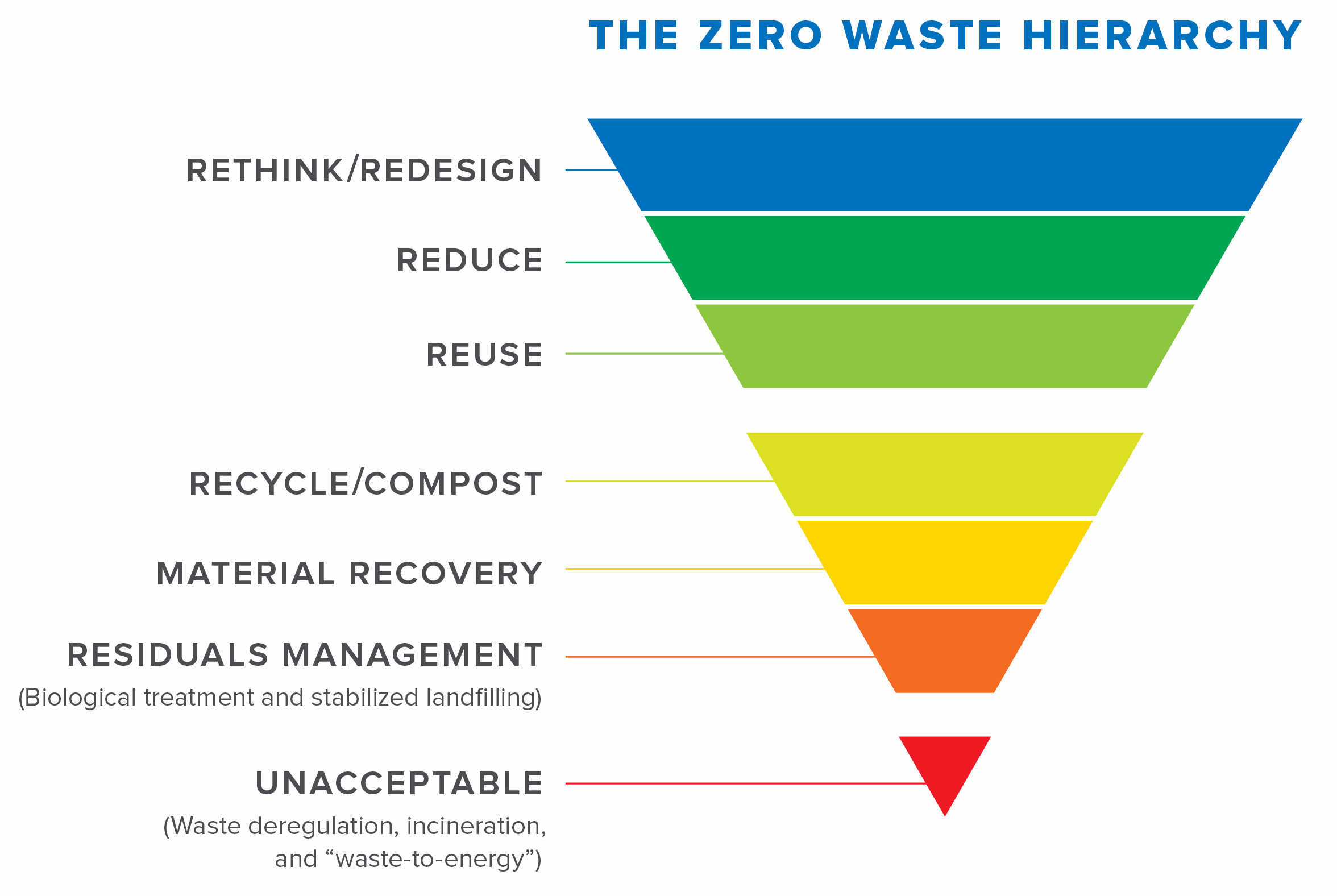ZERO WASTE is defined as “The conservation of all resources by means of responsible production, consumption, reuse, and recovery of products, packaging, and materials without burning and with no discharges to land, water, or air that threaten the environment or human health.”
[See the detailed version of the Zero Waste Hierarchy for specifics.]
Currently, most trash in Delco is burned at the Reworld (Covanta) trash incinerator in the City of Chester, which is a huge health and environmental racism problem for the city, county, and region. We’re working to get the county to transition away from incineration toward Zero Waste, which means switching to landfilling while reducing waste to extend the life of the landfill. We were instrumental in getting the county to develop a Zero Waste Plan and commit to end incineration and are working to complete that process.
Learn more about Delco’s waste system and how we can move toward Zero Waste:
- Where waste goes in Delaware County
- Delaware County’s Zero Waste Plan
- Zero Waste Resolutions adopted in Delco
- Delaware County Solid Waste Authority
General resources:
- Zero Waste International Alliance
- Zero Waste USA
- Zero Waste Communities
- Zero Waste Hierarchy Printable Handout
Major components of a Zero Waste Plan:
Pay as you throw
Zero Waste strategies are capable of achieving deep reductions in waste
generation. When we pay for utilities like electricity, water, or gas, we pay based on how much we use, but with trash, your neighbor could put out ten bags a week and you can put out one, and you pay the same price, which isn’t fair, and there’s no incentive to reduce waste.
“Pay as You Throw” (PAYT) goes by many other names, including Save as You Throw (SAYT), Save Money and Reduce Trash (SMART), unit-based pricing, or utility pricing. It means that you pay per bag or per bin for trash, while recycling and composting are “free.” Over 10,000 other communities in the U.S. use this system, which has proven to be the single most effective and cost-effective way to rapidly reduce waste. Communities that adopt this find waste generation per person is reduced by an average of 44% almost immediately. Learn more here.
Curbside composting collection
Food scraps and yard waste are a large portion of the waste steam, and should feed our soil, not be burned and pollute our lungs. These materials can be composted in people’s yards where possible, or in neighborhood community gardens, but where these aren’t an option, curbside collection must be made available just like recyclables are picked up curbside.
Mandatory residential and commercial recycling and composting, with education and enforcement
Recycling is required by state law only in municipalities with over 5,000 people, and composting is not required at all. We need recycling and composting to be mandatory for residents and businesses in all Delco municipalities, and should have the proper education materials, incentives (like pay as you throw) and enforcement to ensure that all participate as they should.
Deconstruction mandate
Construction and demolition waste is a large waste stream and can be mostly eliminated if we create jobs deconstructing buildings instead of demolishing them. We can also require a certain percentage of materials used in new building and renovation to be recovered building materials. Other communities have done impressive work in this direction and Delco can as well.
There’s more!
These are just some of the building blocks of a Zero Waste system. Read the Delco Zero Waste Plan for more ideas on what your municipality can start doing!
The most important step is the one you take to find others in your community to begin the conversation. Contact us for assistance.

